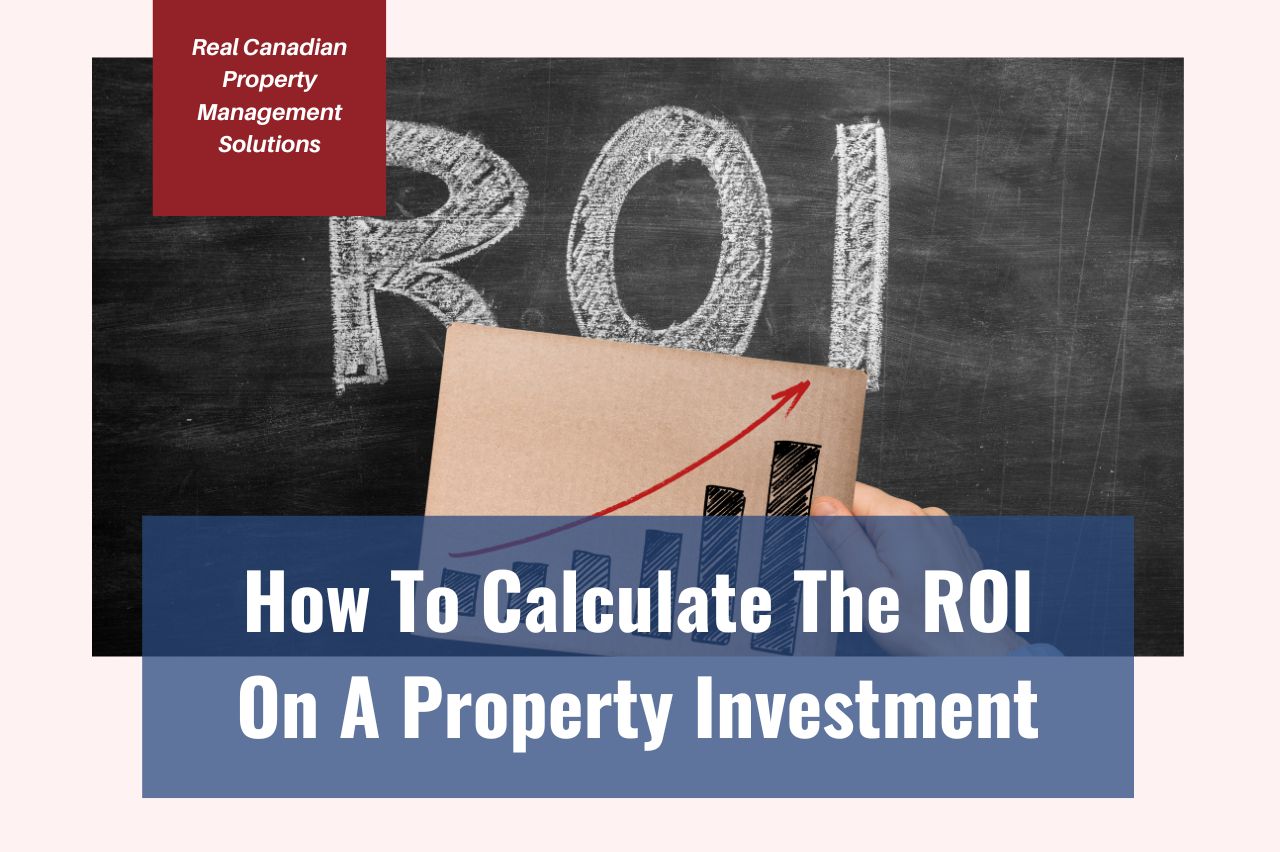
Understanding that Return on Investment (ROI) is crucial for anyone involved in property management. Calculating ROI helps landlords assess the profitability of their investments and make informed decisions about buying, selling, or managing properties.
Monitoring ROI not only provides insight into current property performance but also highlights areas for improvement, such as reducing expenses or increasing rental income. By regularly evaluating ROI, landlords can adapt their strategies to optimize profitability and maintain long-term financial health in their real estate ventures.
ROI Calculation
Calculating ROI on a property investment involves a few key steps. The basic formula for ROI is: ROI= (Net Profit / Total Investment) x 100
A breakdown of how to apply this formula to real estate investments includes:
1. Determine Net Profit:
- Gross Rental Income: Start by calculating the total rental income you collect from the property. This is the amount you earn before deducting any expenses.
- Operating Expenses: Subtract the costs associated with managing and maintaining the property. These expenses include property management fees, maintenance and repair costs, insurance, property taxes, and utilities (if paid by the landlord).

- Net Operating Income (NOI): This is the amount left after subtracting operating expenses from gross rental income.
- Mortgage Payments: If you have a mortgage on the property, subtract the total mortgage payments (principal and interest) from the NOI to get your net profit.
2. Calculate Total Investment:
- Purchase Price: This refers to the original cost incurred to buy the property.
- Additional Costs: Include costs associated with purchasing the property, such as closing costs, legal fees, and renovation expenses.
- Total Investment: Sum up the purchase price and additional costs to determine the total investment amount.
3. Apply the ROI Formula:
- Once you have the net profit and total investment figures, apply the ROI formula to determine the percentage return on your investment.
For example, if your net profit is $10,000 and your total investment is $100,000, the ROI would be: ROI= 10,000/100,000 x 100 = 10%
Key Factors That Influence The ROI of Real Estate Investments
Various factors can greatly affect the ROI of a real estate investment. By understanding and managing these factors, landlords can improve their returns and make more informed investment decisions.
1. Property Location
One of the most important factors affecting ROI is the property’s location. Properties situated in desirable neighborhoods or areas experiencing growth typically command higher rental rates and appreciate more rapidly.
Factors such as proximity to schools, public transportation, shopping centers, and employment hubs can make a location more attractive to potential tenants. Conducting thorough market research to understand local demand and future development plans can help in selecting high-potential locations.
2. Property Condition
The condition of the property directly affects both rental income and maintenance costs. Well-maintained properties tend to attract higher-quality tenants who are willing to pay a premium for a move-in-ready space.

Regular maintenance and timely repairs can prevent minor issues from becoming major problems, reducing long-term costs. Investing in updates or renovations, such as modern appliances or energy-efficient features, can also increase the property’s rental value and appeal.
3. Market Conditions
Real estate markets can vary based on economic factors, interest rates, and supply and demand dynamics. Understanding the current market conditions is essential for making strategic investment decisions, when marketing your rental.
For example, during a buyer’s market, where supply exceeds demand, property prices may be lower, but rental rates could also be less competitive.
4. Tenant Quality
The quality of tenants can have a significant impact on ROI. Reliable tenants who consistently pay rent on time and take good care of the property contribute to a stable income stream and lower maintenance costs.
Implementing a thorough tenant screening process can help in selecting responsible tenants. High tenant turnover or vacancies can reduce rental income and increase costs related to advertising, cleaning, and repairs. Building positive relationships with tenants and addressing their needs promptly can also enhance retention and satisfaction.
5. Financing Terms
The terms of financing, including interest rates and loan conditions, affect the overall profitability of a property investment. Lower interest rates result in reduced mortgage payments, which can increase net profit and ROI.
Comparing different mortgage options and securing favorable loan terms can significantly impact the financial performance of an investment. Additionally, understanding the impact of leverage (using borrowed funds) versus investing with cash can help in optimizing the balance between risk and return.
6. Tax Implications
Tax considerations play a crucial role in determining net profit and ROI. Landlords can benefit from various tax deductions and credits related to property management, such as mortgage interest, property taxes, depreciation, and repairs.

Being aware of tax regulations and potential changes in tax laws can help landlords take advantage of available benefits and minimize tax liabilities. Consulting with a tax professional can provide valuable insights and strategies for optimizing tax efficiency.
7. Operating Expenses
Effective management of operating expenses is key to maximizing ROI. Regularly reviewing and controlling costs such as property management fees, utilities, maintenance, and insurance can help improve profitability.
Implementing cost-saving measures, such as energy-efficient upgrades or preventive maintenance programs, can reduce ongoing expenses. Budgeting for unexpected repairs or vacancies is also important to avoid financial strain.
8. Property Management
The quality of property management services can influence ROI. Professional property managers can handle day-to-day operations, tenant relations, and maintenance issues efficiently, allowing landlords to focus on other aspects of their investments.
They can also provide valuable insights into market trends, rent pricing, and tenant screening. Choosing a reliable property management company can enhance the overall performance of the investment and contribute to higher returns.
By carefully evaluating and managing these factors, landlords can enhance the performance of their real estate investments and achieve better returns.
Bottomline
Calculating the ROI on a property investment involves determining your net profit and total investment and applying a straightforward formula. Key factors such as property location, condition, market conditions, tenant quality, financing terms, and tax implications can influence your ROI and should be carefully considered.
We are here to support landlords in optimizing their investments. We offer comprehensive property management services designed to enhance your rental income, manage expenses, and improve your overall ROI.
For expert assistance and personalized advice, contact Real Canadian Property Management today and let us help you maximize the potential of your property investments.